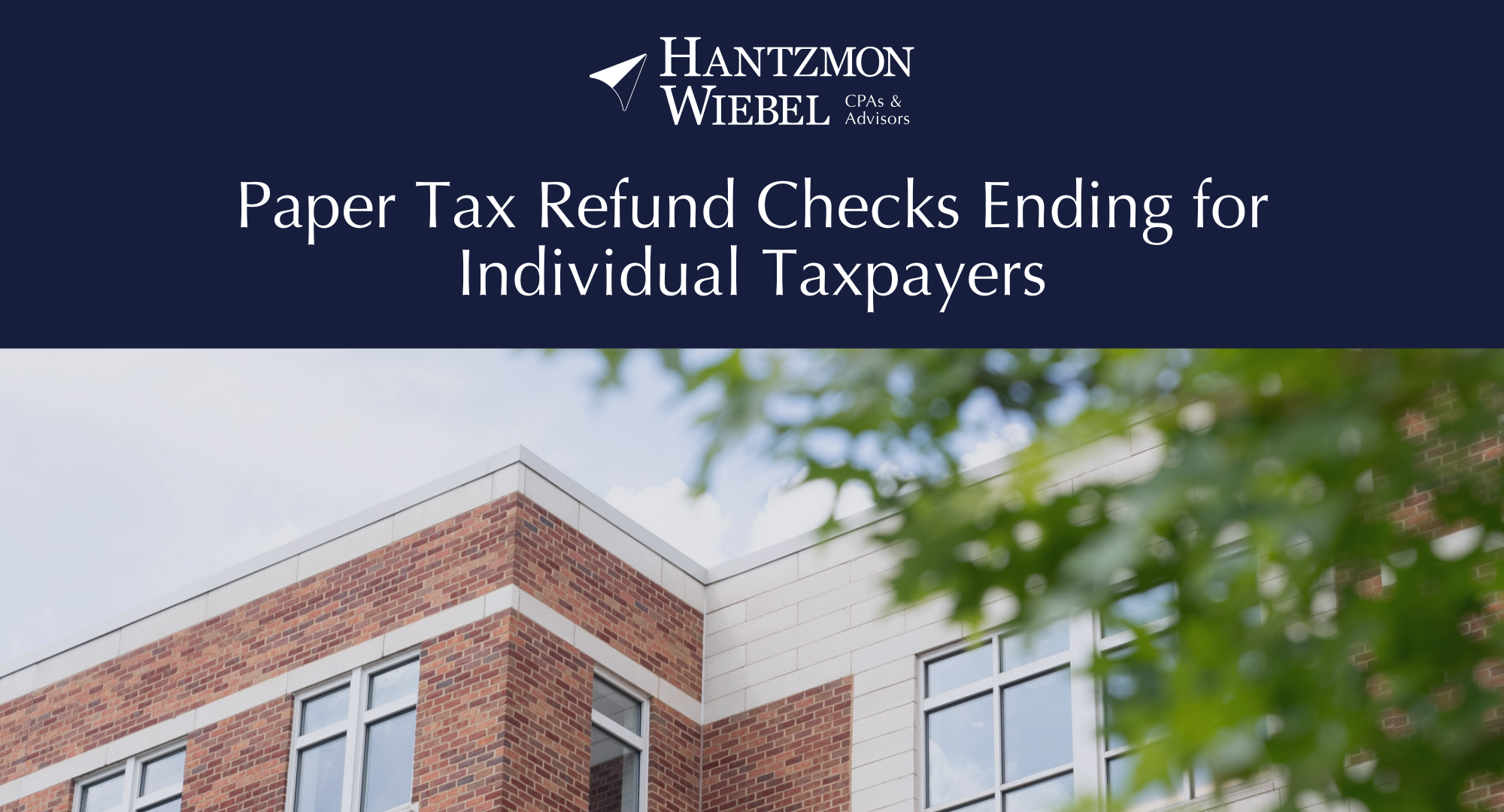IRS to Transition to Electronic Tax Refund Payments
Effective September 30, 2025, the IRS will begin phasing out paper check refunds, starting with individual taxpayers. This change is in accordance with Executive Order 14247, signed by the President on March 25, 2025.
Avoid Tax Refund Delays
If you’re expecting a tax refund this year, it will most likely arrive as an electronic payment. To avoid delays, be sure to provide your banking information to your tax preparer or the IRS. If you choose not to set up direct deposit, other options are available.
Even if you already use direct deposit, it’s a good idea to verify and update your information as needed. If your banking details are missing or incorrect, the IRS may send a letter requesting them—delaying your refund by weeks or longer.
Tax Payments to the IRS
Although the IRS plans to expand electronic payment options, continue using current payment methods until further notice.
Watch Out For Scams
With these new procedures, fraudsters may attempt to exploit the situation. Be on alert for fake phone calls, emails, or letters claiming to be from the IRS and requesting your bank information.
Important: The IRS will never call, text, or email you to request banking details. If you receive anything suspicious, do not respond.
Stay Informed
Guidance on filing 2025 tax returns before the 2026 filing season will be forthcoming. Stay up to date on modernizing payments on the IRS website’s newsroom page dedicated to this topic.
Disclaimer of Liability
Our firm provides the information in this article for general guidance only, and does not constitute the provision of legal advice, tax advice, accounting services, investment advice or professional consulting of any kind. The information provided herein should not be used as a substitute for consultation with professional tax, accounting, legal or other competent advisors. Before making any decision or taking any action, you should consult a professional advisor who has been provided with all pertinent facts relevant to your particular situation. Tax articles in this blog are not intended to be used, and cannot be used by any taxpayer, for the purpose of avoiding accuracy-related penalties that may be imposed on the taxpayer. The information is provided “as is,” with no assurance or guarantee of completeness, accuracy or timeliness of the information, and without warranty of any kind, express or implied, including but not limited to warranties of performance, merchantability and fitness for a particular purpose.

